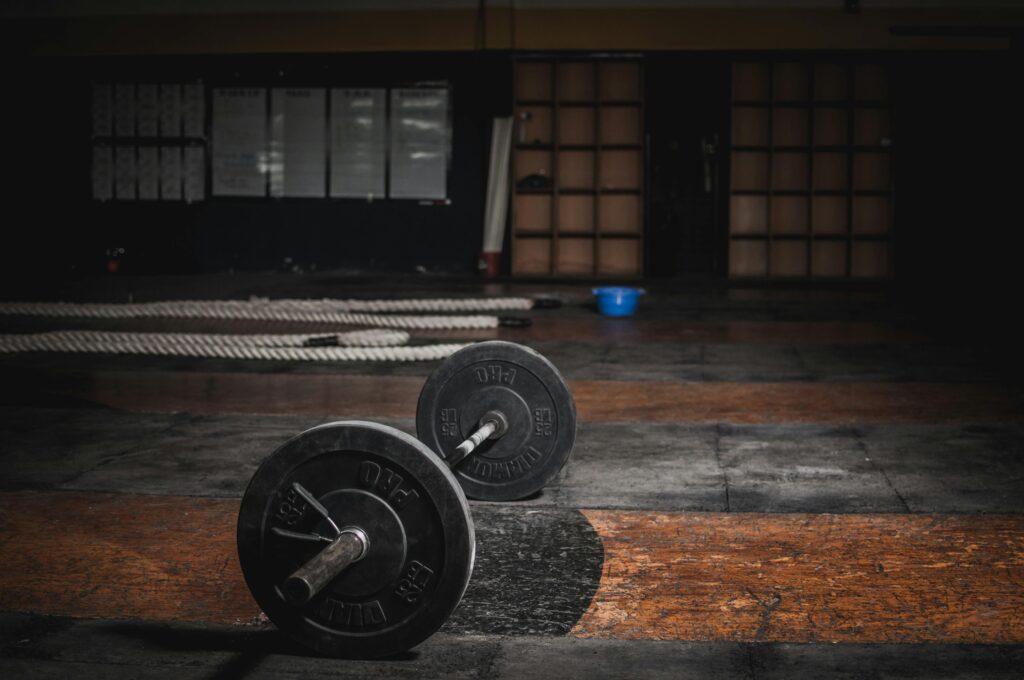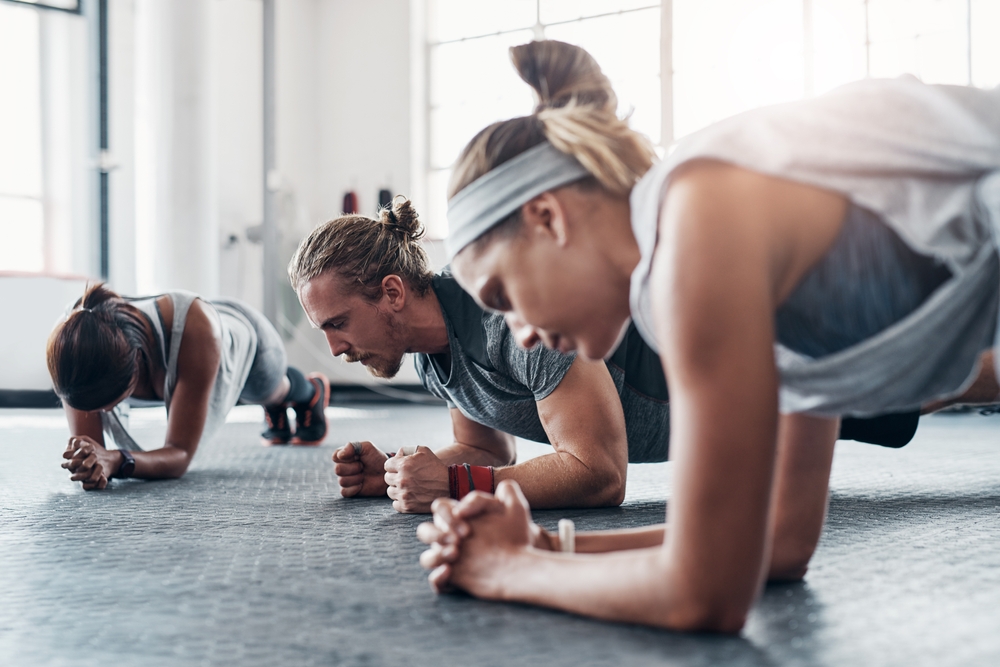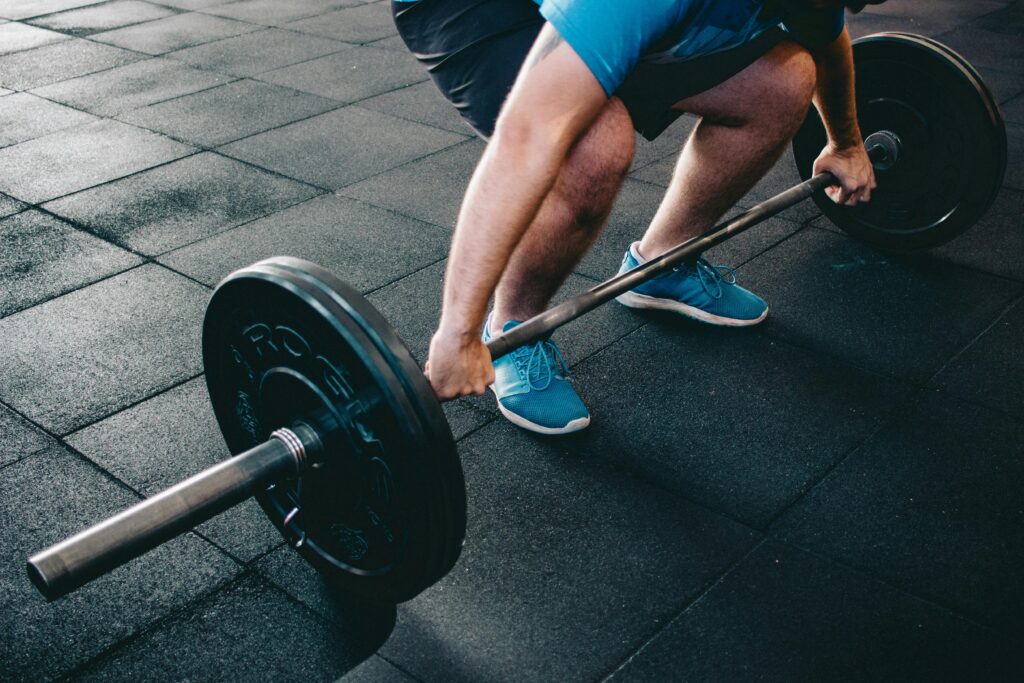
Imagine stepping into what should be a temple for self-growth, only to feel like you’re walking onto a stage—one where you didn’t audition, and certainly didn’t ask for a spotlight. Every mirror reflects more than your form. It reflects the looming question: Who’s watching me right now—and are they recording?
For Gen Z, this isn’t paranoia—it’s reality. Ring lights next to resistance bands. TikTokers turning treadmills into tripods. And behind it all, a growing sense of discomfort so widespread, it’s earned its own name: gymxiety.
In a world obsessed with documentation, even something as personal as a workout isn’t safe from public consumption. Nearly 1 in 5 young adults have quit the gym entirely because the fear of being filmed eclipsed their desire to move, heal, and grow.
But this story is deeper than vanity. It’s about boundaries. About consent. About what happens when a space designed to build confidence starts tearing it down.
The Rise of ‘Gymxiety’
There was a time when the gym felt sacred—where headphones went in, heads went down, and people disappeared into their own healing. But now, for many young people, walking into a gym feels less like entering a sanctuary and more like stepping onto a film set.
The numbers don’t whisper—they shout. A survey by Levity found that 80% of Gen Z gym-goers have felt anxious or uncomfortable while working out, and for women, that number jumps to 85%. This isn’t just about intimidation from iron plates or fitness models. It’s about the unseen eyes of strangers, the looming threat of a camera lens, and the haunting possibility that your most vulnerable moment might end up on someone else’s feed—without your consent.

This is gymxiety—a word that captures what so many are feeling but few are saying aloud. It’s the emotional weight of being watched, judged, and potentially ridiculed in a space that should offer peace. And it’s not a fringe concern. One in five Gen Z individuals have already quit the gym because of the fear of being recorded. For many, it’s not just discomfort—it’s a deal-breaker.
The gym has slowly morphed into a stage for content creation. Lights, angles, and clout-chasing have infiltrated what used to be a deeply personal ritual. People now second-guess their leggings, their squat form, their sweat—all through the imagined gaze of a potential audience. One in ten gym-goers admit to filming someone else without their permission. That means at any given moment, you could unknowingly be the subject of someone’s TikTok, meme, or critique.
But this is more than digital discomfort—it’s a fundamental betrayal of purpose. Fitness isn’t about performance; it’s about progress. And when a space meant for personal growth becomes a place of public scrutiny, motivation doesn’t just fade—it fractures.
When Likes Outweigh Lifts

In today’s gym culture, your gains don’t just happen in your body—they’re measured in likes, views, and followers. Platforms like TikTok and Instagram have transformed gyms from spaces of self-betterment into arenas of performance, where fitness isn’t just practiced—it’s performed for an audience.
Once upon a time, showing up to the gym was enough. Now, for many young people, that’s only half the battle. The other half? Looking good while doing it, having the right outfit, the right angle, and God forbid—being caught mid-rep in someone else’s viral video. In a space meant to encourage self-focus, the gaze of the internet has become the loudest voice in the room.
The impact is staggering. More than 1 in 3 gym-goers (37%) say social media fitness content has discouraged them from going to the gym, with that number rising to 44% among women. Instead of motivation, they’re met with comparison. Instead of community, criticism. When influencers curate the “perfect” workout aesthetic, it doesn’t inspire everyone—it alienates many. If your form isn’t flawless, if your gym fit isn’t brand-worthy, if your workout isn’t content-ready, are you even doing it right?
This culture is reshaping behavior. Half of gym-goers now say they’ve changed how they dress to avoid attention or judgment. Some avoid eye contact altogether. Others stay away from certain gym hours or avoid entire sections where influencers tend to set up. And for those who feel less-than “camera-ready,” skipping the gym entirely has become a form of self-protection.
It’s ironic. In a world more connected than ever, fitness has become less inclusive. The apps designed to share our journeys have, for many, started to derail them. Because the truth is, when attention becomes the goal, authenticity suffers. And when self-worth is tied to online applause, real progress takes a back seat.
Harassment, Judgment, and the Need for Safe Spaces

For many—especially women—the gym isn’t just uncomfortable, it’s hostile. Beneath the surface of #fitspo posts and motivational playlists is a darker reality: harassment, objectification, and a culture that often ignores or excuses it. According to a 2021 Run Repeat survey, 56% of women reported experiencing harassment during their workouts, including unwanted staring, inappropriate comments, physical contact, and being followed.
These aren’t isolated stories—they’re recurring patterns. And they’re being documented in real time. On TikTok, hashtags like #GymCreep and #GymWeirdo have amassed over 100 million views, spotlighting behavior that ranges from unsettling to outright predatory. Women record being cornered, touched, filmed, or followed. And when they speak up, they’re too often dismissed as “dramatic” or accused of misreading harmless behavior.
But this isn’t about overreactions. It’s about boundaries. Fitness influencer Natalee Barnett has spoken openly about her experiences with gym harassment, explaining how those incidents “threw her off” from what was supposed to be a therapeutic escape. Her story echoes the voices of many women who’ve messaged her saying they’ve never returned to the gym after being harassed. Because once that space is violated, it’s hard to ever feel safe again.
And here’s the critical piece: it’s not just about the men who cross lines—it’s also about the silence of those who stand by. Many gym-goers admit they’ve witnessed uncomfortable behavior but didn’t intervene. Others, including staff, fail to act on complaints. The result? A system that too often protects memberships over members.
Some women have found safety in women-only gyms—a growing movement across the U.S. These spaces aren’t about exclusion. They’re about protection. About building an environment where people don’t have to shrink themselves to feel invisible. Where progress can happen without fear.
Still, safe spaces shouldn’t be the exception. They should be the norm.
Everyone deserves a gym where their body is not an invitation, their sweat is not sexualized, and their presence is not policed.
The Ethics of Filming and the Fine Line Between Accountability and Invasion

In an age where every moment can be captured, edited, and uploaded in seconds, the line between awareness and violation has grown dangerously thin. Filming at the gym—once a niche practice for personal progress or coaching—has exploded into a cultural flashpoint. And while cameras have the power to expose real issues like harassment, they can just as easily become tools of harm themselves.
Take the viral trend #GymCreep. On one hand, it has brought overdue attention to the uncomfortable, often predatory behavior many women endure at the gym. As communication expert Dr. Leilani Carver notes, these videos can serve as powerful proof: “It allows you to show others, ‘Look! This is happening. This is real.’” For women who are often gaslit or dismissed, footage can be validating and galvanizing.
But that’s only one side of the lens.
As Carver cautions, public shaming can spiral. When videos are taken out of context—when brief glances or neutral behavior are misrepresented—they risk vilifying innocent people. Worse, they can undermine real victims by blurring the definition of what harassment truly looks like. Fitness personality @thejoeyswoll, for instance, has pushed back against what he calls “performative outrage,” urging people to pause before labeling someone a creep over a split-second glance.
This isn’t to diminish the very real experiences of harassment. It’s to acknowledge that filming without consent can also be a form of violation. Just because someone is in a public space doesn’t mean they’re public property.
And the problem runs deeper than individual videos. 1 in 10 gym-goers admit to secretly filming others without permission. That statistic is not just about influencers or exposés—it’s about everyday people recording strangers, sometimes with malicious intent, often without thinking twice.
There’s also a legal and moral gray area. While most gyms prohibit filming others without consent, enforcement is inconsistent at best. Some patrons use filming to call out harmful behavior. Others use it to ridicule or objectify. And in the middle of it all are people who just wanted a workout—now caught in someone else’s content, permanently archived in the scroll of social media.
How We Can Redefine Fitness Culture

Redefining gym culture doesn’t require burning it all down. It starts with small, intentional shifts—person to person, policy to policy. It starts with respect.
For gym-goers, it means remembering that every person on the mat, under the barbell, or on the treadmill is fighting their own battle—many you’ll never see. Your gaze can either empower or diminish. Your behavior can either protect space or invade it. Choose the former. Keep your eyes, your comments, and your camera to yourself, unless there’s real harm and real consent.
For men, especially, this is a call to be active allies. That doesn’t mean confrontation or becoming a savior. It means stepping up when others cross the line. It means challenging the friend who laughs off “just staring,” and backing women when they report harassment. Silence allows the cycle to spin. Solidarity slows it down.
For gyms, the responsibility is heavier—and long overdue. No-filming zones, enforced anti-harassment policies, and transparent reporting protocols aren’t extra features—they’re basic requirements. Members should know their safety isn’t just a line in a brochure. It’s a commitment with real consequences for those who violate it.
And for the fitness industry at large, it’s time to stop selling aesthetics disguised as empowerment. If your brand thrives on shame, perfection, or unattainable ideals, you’re not promoting health—you’re profiting from insecurity. The message needs to shift from “look at me” to “take care of you.”
At its core, fitness is deeply personal. It’s not about the mirror—it’s about the internal victories: the discipline to show up, the courage to try, the grace to rest. We need to re-center that truth.
Let’s build fitness spaces—digital and physical—that welcome imperfection, protect boundaries, and honor the journey over the image. The gym isn’t supposed to be a test of how good you look under scrutiny. It’s a reminder that you’re worthy of care, even when no one is watching.
Your Body, Your Space, Your Peace
Your body is not a performance. Your workout is not a show. And your peace should never be the price of someone else’s content.
We live in a world that’s constantly trying to turn us outward—toward likes, toward perfection, toward appearances. But the most powerful transformation doesn’t happen on camera. It happens quietly. In the struggle to show up when you don’t feel like it. In the breath you catch between sets. In the small victories no one claps for.
The gym, at its best, is a metaphor for life. A place to build discipline, to work through pain, to fail and start again. And like life, it demands space. Space to be imperfect. To not be watched. To not be judged. To just be.
If you’ve ever felt the urge to quit because the gym no longer feels like yours, you’re not alone. But know this: walking away doesn’t make you weak—it makes you aware. And awareness is the first step toward reclaiming what matters.
So whether you find that space in a women-only gym, a quiet home setup, or a community that prioritizes respect over recognition, protect it. Guard it fiercely. Your fitness journey is yours alone. And you deserve to move, grow, and heal without fear of being turned into someone else’s punchline.
Let’s stop confusing surveillance for support, and visibility for value.
You don’t owe the world your progress in pixels.
You owe yourself peace.
Loading...

